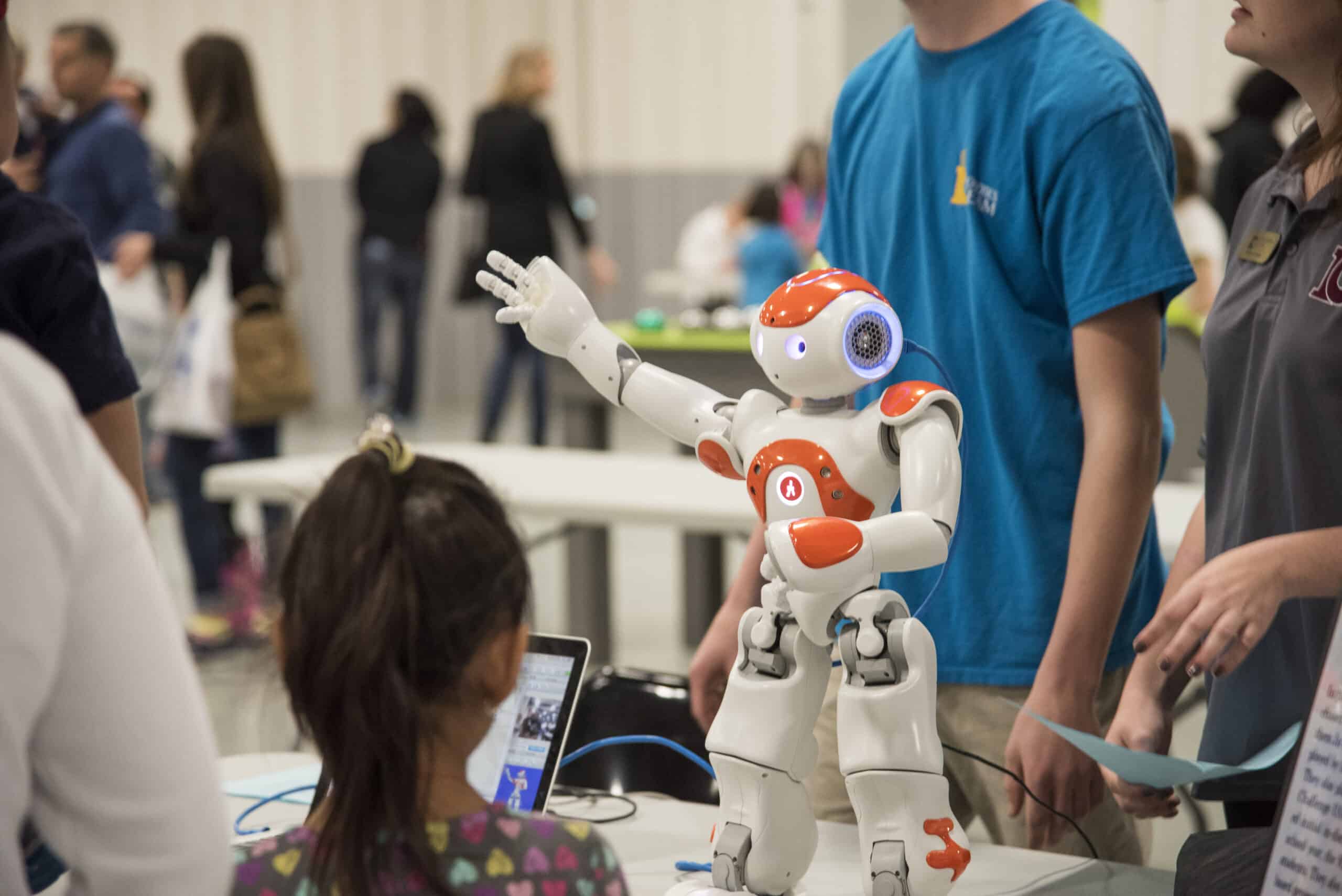Third, fourth, and fifth grade students across St. Vrain Valley Schools are participating in the district’s second round of VEX Robotics Online Academy, a seven week virtual after-school STEM learning club. At no cost to families, students gain skills in computer science and learn to program a virtual robot using VEXcodeVR program, a block based coding environment powered by Scratch Blocks.
“My favorite part of Online Academy is watching the elementary students showcase their creativity and problem-solving abilities,” said Skyline High School Senior, Nolan Helmstetter.
Student participants meet weekly in a team style setting with a designated teacher coach and a high school student mentor. Each week, the team coach posts a video covering a new computer science theme. The students work to master the theme asynchronously through different online challenges until the following team meeting, where students socialize with their peers and collaborate to hone their programming skills over WebEx.
High school students advance their skill sets by taking on a leadership role within the club and co-teach content with the team’s main coach. The student mentors provide constructive feedback to their elementary-aged peers. “They use the guiding question, ‘How am I explaining this so a young student can understand and work?’,” said St. Vrain’s VEX Program Manager Alexandra Downing.
Nolan developed a passion for robotics when he was in middle school and decided to participate in Online Academy as an opportunity to help younger students grow their interest and explore the different opportunities within robotics.
“It is very rewarding to start to see kids come out of their shell, so that you can get to know their personalities,” said Nolan.
Online Academy has allowed students to continue their engagement with Robotics in an online setting. Students master foundational computer science skills, which prepare them to be more successful in robotics going forward. The program’s virtual robot has allowed students to master challenges similar to what they would experience in an in-person club, such as programming a robot to successfully exit a maze through their understanding of robotic sensors, and programming a robot to draw a house through their understanding of coordinate graphing.
Downing emphasized that due to the club’s model, students improve their communication skills during team meetings and their critical thinking and perseverance skills during independent work. She has noticed her participants develop a continued thirst for computer science knowledge.
“Online Academy continues students’ engagement in robotics and creates a space for them to talk to others about their shared interests. We help our students keep their interests alive.”

